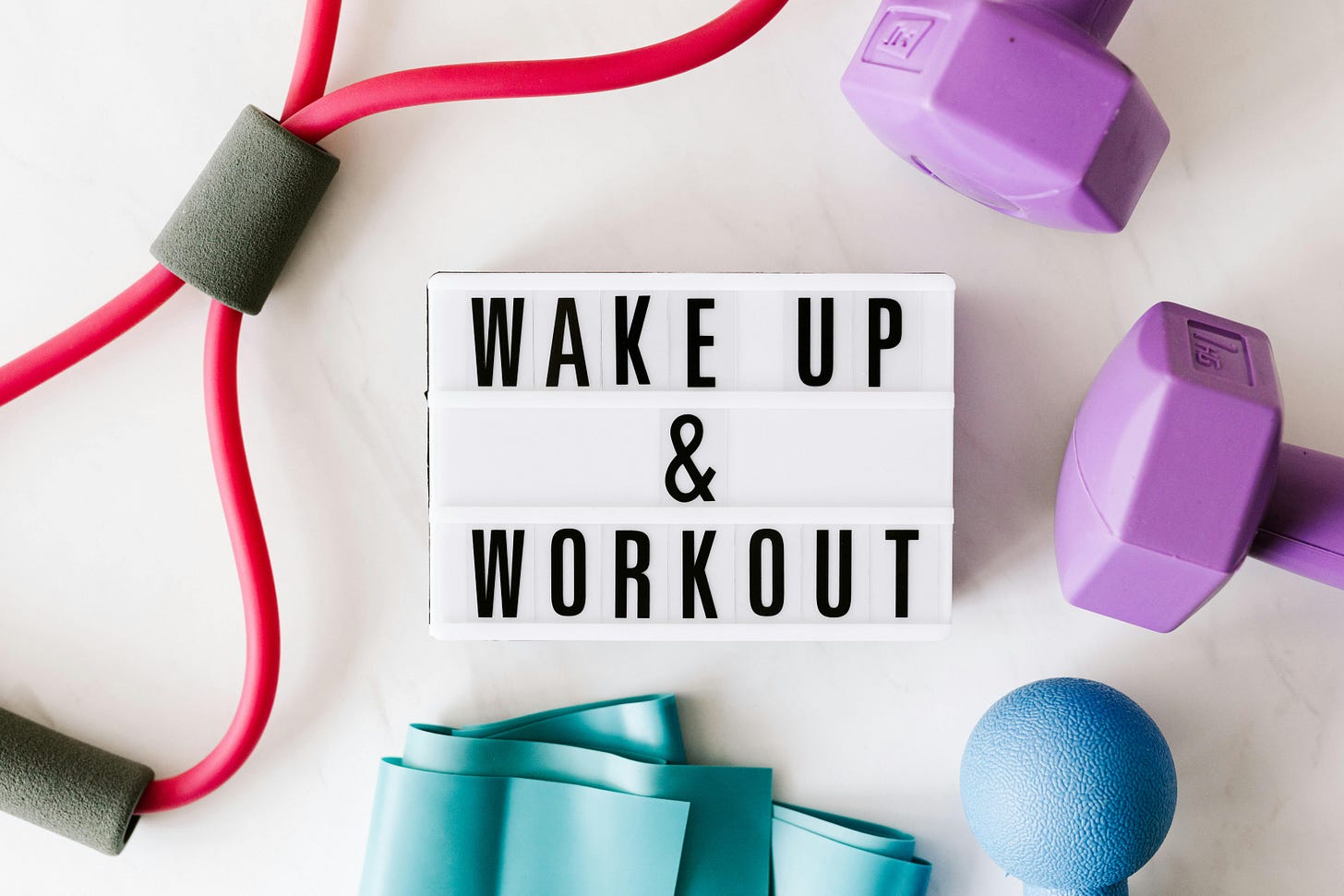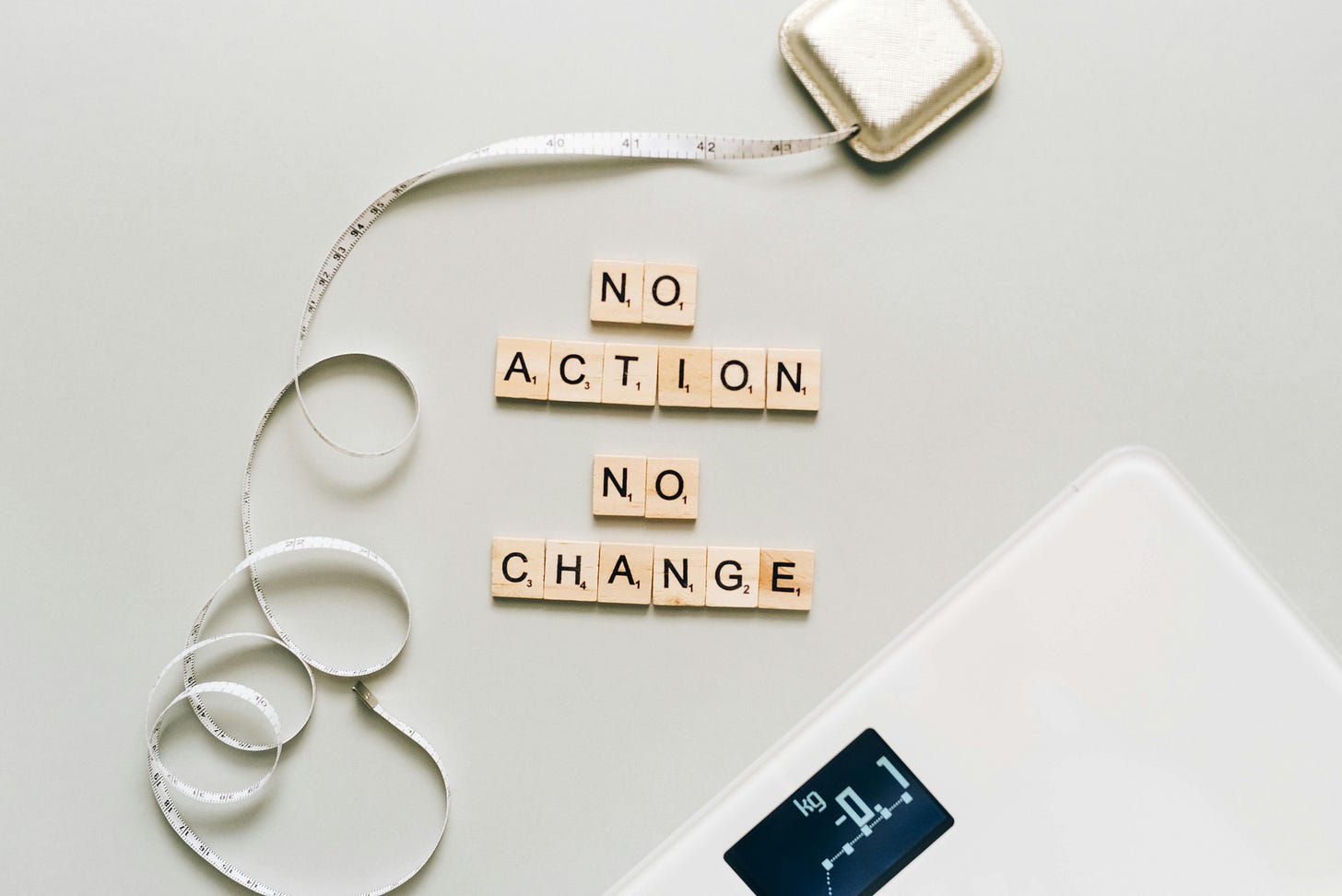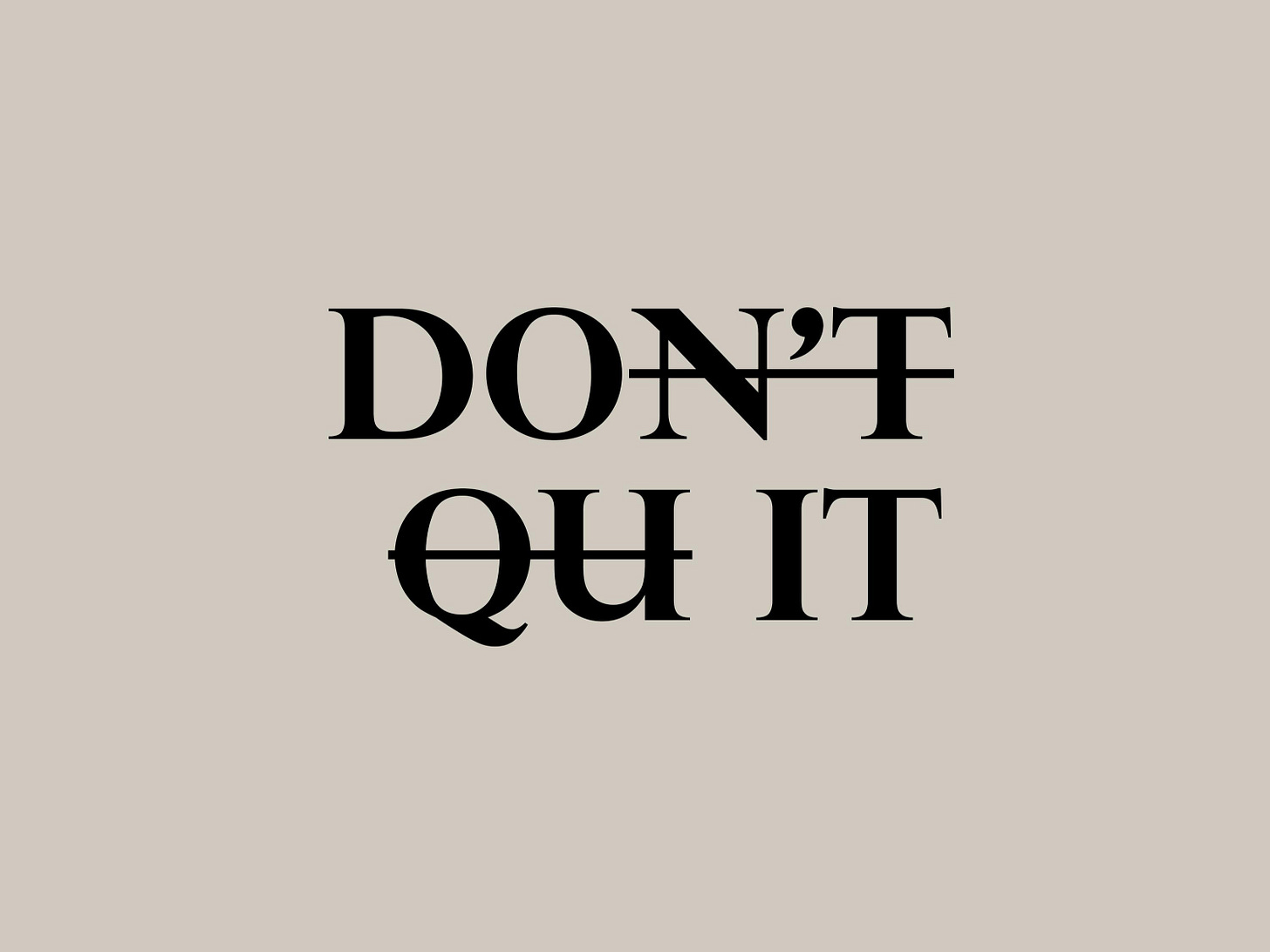Interview and article by
Jenny Cline, Editor-in-Chief, Echoes & Vine
Unleash your potential and prioritize your wellness.
I'm Ashley Fitzpatrick, a veteran of the US Air Force and fitness enthusiast. My unique blend of military discipline and holistic knowledge has helped me break through barriers and achieve transformative results. Discover the exact strategies I use to build unstoppable resilience, overcome self-doubt, and achieve my most ambitious goals. Get ready to reboot your resolutions and unlock a stronger, healthier, and more confident you!
January has come and gone. So, it's time to assess our progress on those New Year's resolutions. Maybe you're crushing your goals, or perhaps you're struggling to stay on track. Either way, it's time for a mission reboot! Join us as we chat with Ashley Fitzpatrick, a veteran of the US Air Force who's on a mission to help you transform your wellness journey. Drawing on her military experience and expertise in healthy living, Ashley will share inspiring insights and practical advice to help you overcome obstacles and reach your full potential.
Interview Transcript
Jenny:
Okay. So Ashley, how did your military experience influence your approach to wellness?
Ashley:
Honestly, the military built my whole mindset around discipline and consistency. With being in the Air Force, it's all about performing your best every single day.
That kind of routine, it just stuck with me. I approach fitness and wellness the same exact way now, till this day, even with me being out of the military. It's not about waiting for motivation to hit. It's about building habits that keep Me going every single day. There are days that I don't feel like working out.
I feel like that's just completely normal to everyone, it's just staying consistent, making sure that you show up every single day is what matters.
Jenny:
I'm definitely guilty of that.
I just this morning looked at my gym equipment and I don't have far to go, so I've made it pretty easy on myself. And still the motivation, I use it as a scapegoat to go, you know, it's a little cold today, maybe not today. Is that a headache I feel coming on? Maybe tomorrow. And I think that's really interesting when you say not waiting for motivation to hit.
When you feel that lack of motivation pulling you in the opposite direction, what is your recommendation for getting over that hurdle? I mean, in the literal sense and, uh, metaphorically, for not buying into the excuse of not today.
Ashley:
So, over the years, with me working out, I've had a lot of friends, cousins, and family members always asking me, how do you go to the gym every single day?
It's sometimes so daunting, like it's a daunting task that you just don't want to do. You're exhausted from working, you're exhausted from running errands, and you just want to just go home, sit on the couch, relax, put your feet up. At the end of the day, you have a goal, whether it's to lose weight, to gain weight, build muscle, whatever it is, you just have to keep that in the back of your mind and just say, “what am I doing to meet that goal?”
Sitting on the couch is not going to allow you to meet that goal. So let's just say an example. Today. Whatever happened, whatever obstacles, you're just so exhausted and you just feel like you can't make it do five pushups, 10 sit ups before you even get in the shower and just make sure that whatever is going on in the day you show up.
It's hard. No matter what you do every day, you're not going to be motivated, and that's just the reality of it. There's nothing that's going to push you physically to get up and go. It's something that’s a mindset. You have to do something, even if it's so small, to get a little bit closer to your goal.
Jenny:
That makes it sound more manageable.
And I like how you say the word daunting, because I mean, just someone who loves fitness, it's something that they look forward to and it's a motivating fact. But I think for other people, like you said, that's not a routine yet, it's something that you're starting out. It's not yet a habit.
Maybe that's not a motivator for us. It's something that…we're trying to build those practices. I think what stuck with me when you said try to do five push-ups, five sit ups, something to get you towards your goal, because doing nothing will achieve nothing. It's kind of like, pick up five things when you leave a room.
You can do that. You know, I may not feel like doing spring cleaning this Saturday and overhauling my entire, house just to get it ready for a big purge. But, I can pick up five things when I leave the room and put it away. And that's what that sounded like to me. So, very manageable.
And it doesn't seem like I have to climb Mount Everest by the end of the month. All I have to do is just one foot in front of the other, and that sounds like something where I don't have any excuses that I can't manage that.
So to make it fun, how can we reboot our resolutions and get back on track when we encounter setbacks or plateaus? And I know we touched on this a little bit, but I want to hear it from a military perspective.
Ashley:
In the new year, It's normal. Everyone has their resolution of: I'm getting back in the gym.
And once it gets towards the end of the month, you look back and you're like, I really didn't make it to the gym that much as I thought I would. Setbacks are normal. It's part of the process. People think progress is just a straight line. But in reality, it's a roller coaster. You're going to have your ups and downs.
Some days are going to be great. Some days are not. The key to getting back on track is resetting your mindset and approach. There are four important points to achieving your goal.
The first is re-evaluate your goal. Sit back, think about what's going to help you get to that big goal. Is your goal too big? Is it too vague? Do you need to make adjustments to be more realistic and break that down into smaller steps to be able to achieve the goal?
Second is focus on consistency over perfection. Missing a workout or eating off your nutrition plan isn't failure. What matters is what you do next. So, let's say your workout plan is five days a week, but you only made it four days, you know, Monday through Friday.
So, guess what? Try to sacrifice your Saturday and get in the gym. Do that extra little workout. Let's say that you are eating great Monday through Friday and one day you accidentally have a cheat day and it's off your nutrition plan. What do we do? Just make sure that the next day you eat great.
The third one would be: change things up.
If you hit a plateau, that means your body has adapted and you need to mix things up. Try a different workout, change your nutrition, add some more rest days. Your body needs a shock and you need to change your routine. I personally change my workout routines every two months.
If you get tired of what you're eating, make sure you look up new recipes. It's so easy with Pinterest, chat GPT, you can chat GPT things that you have in your pantry and it'll make a list for you. So, there's no excuses. And just don't get complacent.
The most important final thing is give yourself grace. Nobody is perfect. Keep showing up. Don't let your excuses get in the way because you will never meet your goal that way.
Jenny:
That word ‘excuses’ is coming up quite a bit, and it kind of leads me to my next question. Does accountability play in achieving wellness goals and how can we leverage support systems to stay motivated?
You just mentioned Pinterest and AI helping us with staying on track with our nutrition and those are great tools to help us out through the week. Do you have any recommendations on not necessarily being codependent on a partner to get us to the gym (I'm not talking about myself)… Uh, what are your thoughts around that?
Ashley:
So, there's a few things. Accountability is huge - it keeps you from ghosting your goals. It is easy to make excuses when no one is watching. But when you do have people checking in on you sometimes, it's more likely that you follow through. So, let's say, for some people this may be an option, for others may not:
Finding a gym buddy or an online community, knowing someone else is counting on you makes a huge difference. I, in the past, have used trainers (and I still have a trainer currently only because sometimes I have issues with my accountability) and using a gym buddy or a trainer in a sense, is going to hold you accountable to showing up in the gym.
There were days where I would tell a friend of mine, I'm just so sorry. I had so many things going on today. I don't think that I'll be able to make it to the gym. My friend would be, “hey, I'm at the gym. Figure it out.” And it was amazing. Because it pushed me, even if I didn't want to.
Another would be track your progress. It could be many ways, whether it's the fitness app, a journal, weekly check-ins. Just so you can see how far you have come in your process.
I take weekly pictures at the end of the week, and to me, I love doing that because your eye may not be able to see the physical change. But when you have photos, over time, you're able to see the progress that you've made. Oh, my arms look a bit stronger and defined. Or my waist looks slimmer. Whatever your goals are, you're able to see that over time.
And your goals - telling people what they are makes them real. Having someone in your corner, they're hyping you up saying: “How's everything going with the gym? I noticed that you look a little bit more tone.” So being more vocal about it also helps.
Jenny:
What was the transition for you like, where before you had accountability and an expectation that you had standards to meet.
Someone was monitoring your progress, and maybe you can explain this better. But when you have standards as far as weight and minimum requirements for fitness, and there were accountability partners - just by default as far as group physical fitness, explain what that was like to be in the military - be part of a community. And now out on your own where no one's telling you what that standard is anymore and there's no mandatory.
Ashley:
Before joining the military, I couldn't even do a push-up. And it freaked me out because I knew that was part of being in the military and the standards that needed to be met.
So, when I went through basic, that's the majority of what you're doing. You are working out every single day and building yourself. That is what started my journey of loving fitness. Once I was through basic training and tech school, all we did was work out and I fell in love with it. Into my military career, as you said, there are standards that need to be met every year.
It held me accountable I had to make sure I was fit throughout the years to meet those standards. Now that I am out, you're correct. I don't have anybody to technically be accountable of what I'm doing every day, but one thing that has stuck with me my entire life and still to this day is my grandmother.
She is 94 years old. We used to tell her all the time, you should take it easy. You should relax. And she said, which stuck with me, “si te sientas, te mueres.” Which is in translation, “if you sit down, you die.” And she used to always tell us, you have to keep moving. You have to keep your body going. The moment you get older and you start sitting down and relaxing, that's it. That's when your body starts to deteriorate. That just keeps me moving every single day.
Jenny:
I think that's kind of the opposite of what we're encouraged to do, because our society in America, at least, is just this nine to five hustle that's never a nine to five. It can typically be more like a seven to seven at best, and then there's all these responsibilities at home.
So, when you finally get this opportunity to relax and chill, not that that is bad, but I think maybe we should start looking at what do we consider relaxing? What do we consider as taking a moment for self-care and pause? I think we need to make sure that those things are actually caring for ourselves and not doing more harm than good. Because a lot of this chill mentality is not doing us any favors.
It's one thing at a holiday time and watch a family movie together. But when that becomes where we're sitting in front of the television every night and watching a movie together instead of doing something more active…why aren't we having dinner and then going for a walk like a lot of cultures do?
They sit down for mealtime. They all prepare the meal together. Then they go for an evening walk together. They may come back and play games. There are more things that we could be doing, like you said, to stay active than this. The definition of rest that we have kind of taken advantage of that concept, and given it something that I think it was never intended to be, and we've manipulated it into something…
Well, “I deserve this,” and I think what we need to think about - is what is good for our bodies? What does it truly deserve? I think we need to consider the fact that what our bodies are deserving of is things that are good for it for the long term, not just what feels good in the moment.
And if we change our way of thinking, like you said, our mindset about that, what can feel good in the moment can be retrained. We can reframe our thinking about what feels good.
And what's one crucial piece of advice you'd give to someone who is struggling to make progress on their wellness journey?
Ashley:
Stop over complicating it. Progress isn't about doing everything perfectly. It's about doing something consistent. Start small with walking more, drinking more water, getting enough sleep.
Sleep is important for recovery. Once those habits stick, build from there.
An example: if your goal is to build muscle and eat healthier, start with baby steps. Track what you're eating for about a week. Don't even start working out yet. If you try to do everything at once, you start to get overwhelmed.
At the end of the week, reevaluate your foods, what you have consumed. Are you eating enough protein? Are you meeting your calorie goals? Are you eating too many calories?
Make changes and the following week, start easy and light in the gym. Keep up with your nutrition and also incorporate your gym routine. Make sure you show up every day, get yourself into a routine, and let your body know, “hey, we're doing this!”
We are showing up every day. We’re going to start eating healthy, and we're going to start working out. Over time, these small changes add up. Before you know it, you're getting stronger, you're getting healthier, and you're getting closer to your goals.
And most importantly, don't compare yourself or your journey to anyone else's. Your progress is your own. As long as you're moving forward, you're winning.
Jenny:
That sounds like it's not just getting your body to accept the changes that are happening by going about it that way. But also allowing your mind to accept - we're making changes. Because as humans, we can be very averse to change. And so introducing it in this way - that is allowing time for acceptance.
I think it's something that we can start to wrap our heads around and say, okay, we're going at a pace that I understand that I can adjust to, and maybe we won't be so quick to jump ship. I know you're Air Force, so maybe, but, uh, yes.
So thank you so much for sharing your wisdom and imparting your techniques to us so that we might have some success that you have had with your wellness journey, and hopefully incorporate some of these practices into our own fitness journeys as well. So that we can maybe have some results that we're all aiming to have so, uh, we'll continue to “Aim High” [United States Air Force mantra].
Thank you so much Ashley!
Ashley:
No, thank you for having me.
Extend the invitation!
Share Arbor of the Vine with like-minded individuals.
We're committed to helping women cultivate their inner strength, creativity, and purpose, within an inclusive community that uplifts and inspires.

















